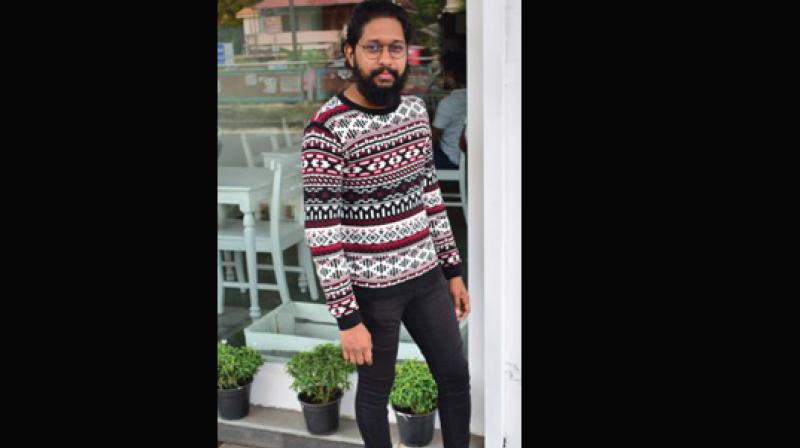Designs of faith

Three years ago, designer Jebin Johny’s mind got hooked on to the words Elie Elie Lama Sabachthani (My God, My God, Why have you forsaken me?) that Jesus had said at the ninth hour of his crucifixion.
The line had such a deep-rooted impact that Jebin decided to take it up as the theme for his latest collection. For someone brought up in the Christian faith, putting this theme on fabric was not a Herculean task for Jebin. The only difficult part was to convince the two nuns who did patterns for the collection.
“As a kid, I was not very interested in church matters. In fact, I was against them, perhaps because they often advised me. However, growing up, I realised that they preached only good thoughts. I had failed to take them in the right spirit,” confesses Jebin who titled his latest collection Elie Elie Lama Sabachthani.
Meanwhile, he asserts that the collection is not purely religious. “I look at various aspects, religion is just one among them. I have taken Christianity as an example. More than religion, my collection gives importance to humanity, especially the way society forgets humanity. Jesus is a person who died for humanity. Religious fanaticism and freedom are other elements I address through my collection. There is no need to fight in the name of God. We just have to believe that there is a supreme power,” he says.
Elie Elie Lama Sabachthani features 16 attires done in black, white and blue. Jebin has taken cues from the church as a whole and the lifestyle of nuns for his collection. That is one reason for the presence of cape in his costumes. “Besides, cape is now trending in the fashion world. Imported satin is used to create clothes which are embellished with hand-painted prints,” says the native of Muvattupuzha.
One dress carries prints of hands while the other one has prints that resemble falling of light. “That hand print denotes beating on the face of society for fixing borders for us. The falling of light, which we see on church windows, indicates a ray of hope. I have also tried writings on the dresses,” explains Jebin who sells his creations under the label Jebisispar through outlets and Facebook.
This collection also explores the life of a blind person. The novel Dreams in Prussian Blue and the Malayalam movie Artist, where the male lead is an artist who loses sight, have inspired the designer to come up with this collection. “What will happen if I lose my sight? That was the question. First, I did research on the life of the blind. Later, I went blindfolded for a week and walked inside my home to understand their pain and hand-painted those fabrics. My sister Jaini Johny would bring the clothes and I would paint them,” he recalls. Jaini has also modelled for the same.
The collection was launched in Kolkata, where Jebin has a strong customer base. The project took him around six months to complete. “The stitching was done by deaf and mute tailors. The pattern making was done by two nuns. In the beginning, it was a tad difficult for me to communicate with them. Mine is a designer, luxurious product. So perfection is important. It took three months to mould them. I conveyed my requirements through actions. Again, that was an eye-opener,” says the designer who showcased his first collection at the Lakme Fashion Week in 2015. “That was based on Kathakali and Kabuki dance forms.
The show happened soon after I completed my studies. Fashion Week was a great experience — it earned me a name in the fashion circle,” says Jebin.
He likes to put up his work as art rather than just designs. Jebin is not only a designer, but also a dancer and psychological counsellor and counsels people online for free.

